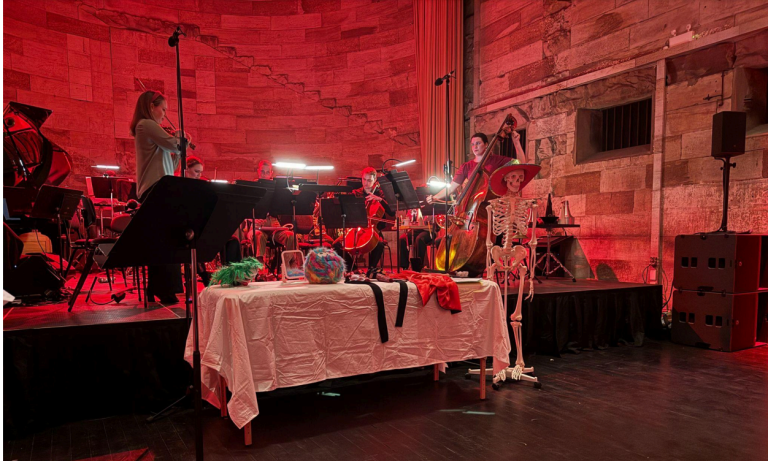Album Review: Schubert Die Schöne Müllerin/ Greco/ Helyard/ ABC Classic
Schubert: Die Schöne Müllerin
David Greco (baritone) Erin Helyard (piano)
ABC 481 8741
Written by Randolph Magri-Overend
What better enjoyment can you have on a day teeming with rain (I would have used a stronger word to emphasise the dreariness but my editor would insist on changing it) when you can sit comfortably in your favourite armchair listening to Lieder. In this case it’s Messrs David Greco and Erin Helyard and their elegant CD, Schubert: Die Schöne Müllerin. They make a formidable team – David with his clear enunciation (even in German) and easy musical fluency and Erin with his wonderful talent on the piano.
From the word ‘go’ you can tell they mean business. The energy from both in the first song Das Wandern (Rambling) is clear and precise. In contrast, the next song is dramatic. Throughout, Erin’s playing is sympathetic with a touch of elegance. His touch is clear (as it should be), never obtruding into the vocal line. I recall years ago, Lieder being described as two separate pieces of music which never meet…..meaning the piano plays one tune and the singer something totally different. That is an over-simplification (if not wrong). True, the musical lines are different but both artists have to realise that without one, the other is ‘legless’ and that one has to listen to the other artistically, rhythmically and musically. By musically I mean dramatic when drama is required, fluent when legato predominates and emotional when pathos creeps in.
The story of how Schubert first came across Wilhelm Müller’s poetry is cloaked in mystery. One story has it that after he read it in a friend’s house, Schubert nicked the book and when the friend came to retrieve it from Schubert’s house the following day, the latter had already composed the first songs. Another, more plausible story, is that he was introduced to it by Weber who was a great friend of Müller.
The cycle revolves around a journeyman discovering and following a brook that eventually leads him to a mill. He falls in love with the miller’s daughter who, alas, rejects his advances. Her affections are devoted to a huntsman (not the spidery kind) clad in green. In a fit of anguish and distress the journeyman starts hating everything green before fantasising of his own death in which flowers sprout from his grave to express his undying love. The songs are mostly in strophic form and the music meanders between cheerful optimism and despairing sadness.
Schubert first started composing the cycle in 1823. He’d been diagnosed with syphilis by then and composed the first songs in hospital. It was published in 1824 in Vienna as Schubert’s Op. 25 and entitled Ein Zyklu von Liedern (A Song Cycle).
But to come back to this fascinating CD….. I found David’s sotto voce wonderfully evocative and almost tenor-like. He quickly returns to his normal baritone when called for. For example his Ungeduld (Impatience) is dramatic and urgent, yet the following song Morgengruss (Morning Greeting) reverts to legato and sotto voce.
Erin also has time to indulge in a solo in Schubert’s Impromptu in G-flat major, D899 no 3. I am no great expert on piano music but it sets the tone for the rest of the songs …. numbers 14 to 21.
There is only one blemish with this CD. It is that the cover notes Erin has written are packed with interesting information but…..they are far too long and because of that (and here I am guessing) the font used is small and faint. Hard to read. Nothing to do with the music, but…..
…..does anyone know of a microscope being auctioned on eBay?
Randolph Magri-Overend for SoundsLikeSydney©
 When Randolph Magri-Overend first set foot on the Sydney Opera House stage to act in ‘Boris Godunov’ in late 1979, he hoped his Nannu Gusi was taking note from up above. He was the driving force behind Randolph’s love for classical music, especially opera. Since that first step Randolph played out his fantasies many a time in other operas. At the time, he was trying to make it as a classical singer…even a young Simone Young was his coach. But he was never successful and later in life he became a ‘disc jockey’ for the likes of Fine Music (amongst others). He also wrote reviews, programmes and articles for their magazine. Randolph hopes he can share the joy he harbours for music with you.
When Randolph Magri-Overend first set foot on the Sydney Opera House stage to act in ‘Boris Godunov’ in late 1979, he hoped his Nannu Gusi was taking note from up above. He was the driving force behind Randolph’s love for classical music, especially opera. Since that first step Randolph played out his fantasies many a time in other operas. At the time, he was trying to make it as a classical singer…even a young Simone Young was his coach. But he was never successful and later in life he became a ‘disc jockey’ for the likes of Fine Music (amongst others). He also wrote reviews, programmes and articles for their magazine. Randolph hopes he can share the joy he harbours for music with you.







